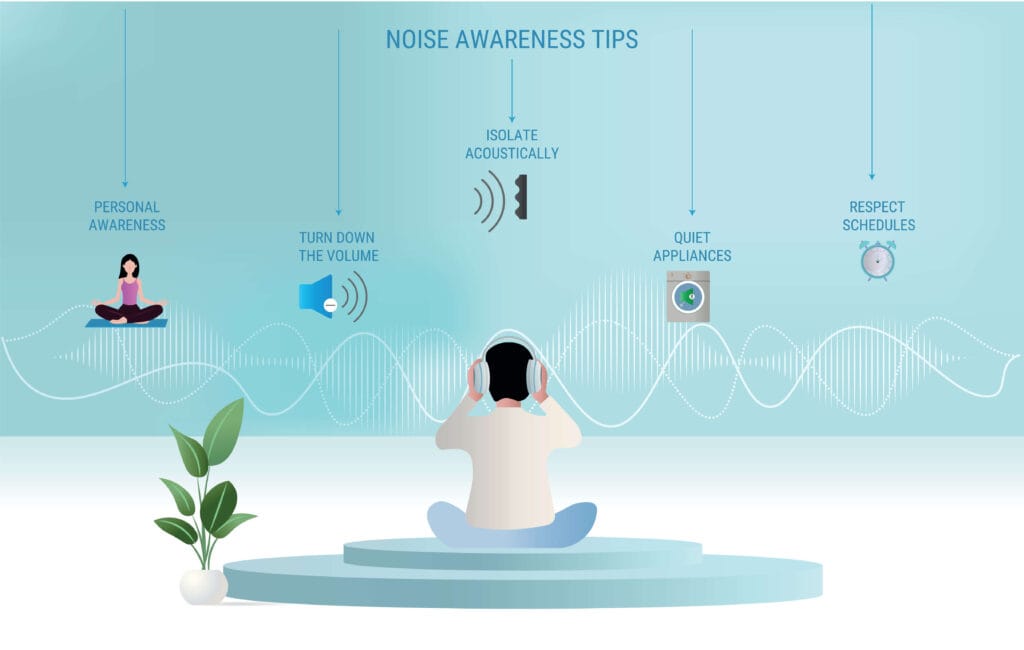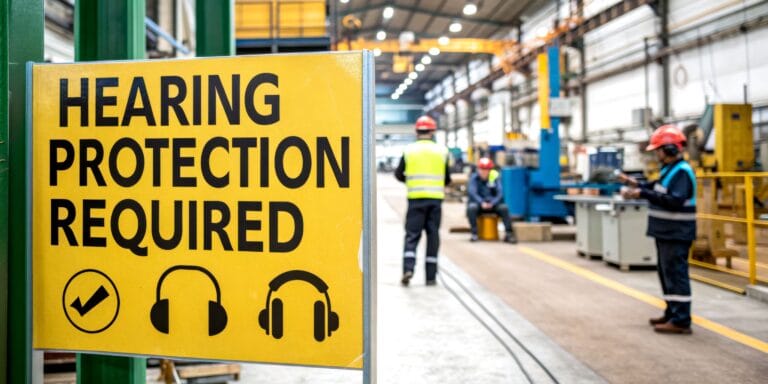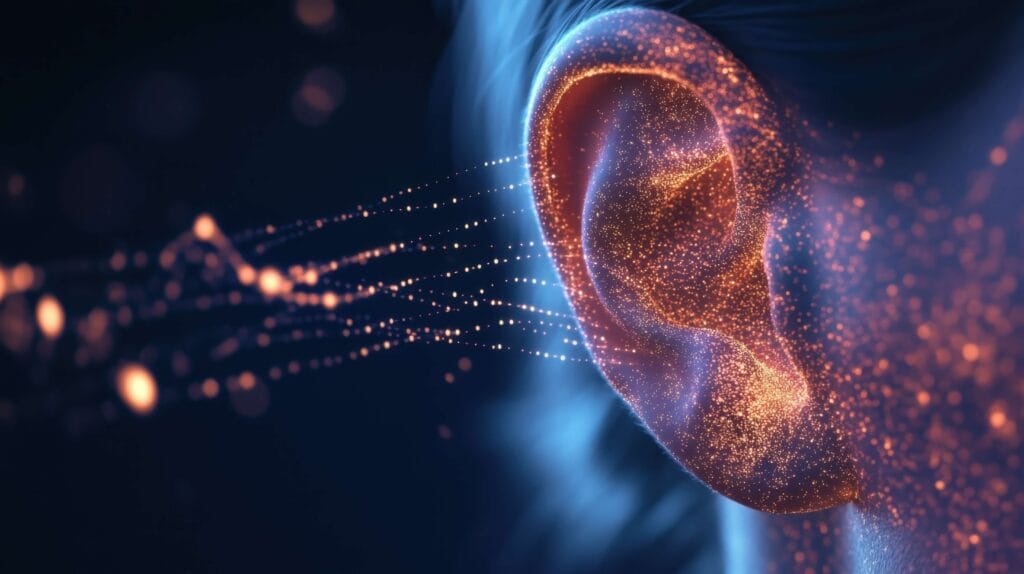On 30th April 2025, we join the global movement in observing International Noise Awareness Day a time to reflect on the everyday sounds around us and their long-term impact on our health. This Year’s theme, “Protect Your Hearing, Preserve Your Health,” calls on each of us to prioritise hearing care as essential part of overall well-being.
At Hear4U, we’re proud to stand behind this mission. Our team are passionate about protecting the precious sense of hearing and helping people lead fuller, more connected lives. Whether you’re facing noisy commutes, working in a loud environment, or simply using headphones daily, this blog will show you how to take actions today for a healthier hearing tomorrow.
What is International Noise Awareness Day?
Launched in 1996 by the Centre for Hearing and Communication (CHC), International Noise Awareness Day (INAD) is held annually on the last Wednesday of April. This year, that date is 30th April 2025. The day is seen globally to promote education about the dangers of noise pollution and encourage action on both personal and policy levels.
The Centre for Hearing and Communication (CHC) is a renowned non-profit organisation that has supported individuals with hearing loss, auditory processing disorders, and communication challenges for over a century. Based in New York City and Ft. Lauderdale, CHC provides comprehensive hearing healthcare, personalised support, and advocacy to help people of all ages lead connected and fulfilling lives. Their creation of International Noise Awareness Day highlights a long-standing commitment to hearing conservation, public education, and noise awareness on the risks of everyday exposure.
Noise is all around us, from city traffic and construction work to household appliances and leisure activities. While many of these sounds are considered normal, long-term exposure without protection can have lasting consequences.

Why We Shouldn’t Ignore Noise Pollution?
We tend to think of pollution as something we see-like litter or smog. But noise is an invisible pollutant that deeply affects our health and quality of life. According to the World Health Organization, long-term exposure to environmental noise can lead to both physical and psychological problems — a concern strongly highlighted by International Noise Awareness Day.
Continuous exposure to loud noise can result in:
- Permanent hearing loss
- Tinnitus (ringing or buzzing in the ears)
- Sleep disturbances
- Chronic stress and anxiety
- Increased risk of cardiovascular conditions
- Reduced memory and cognitive performance
And it is not just industrial noise – common household appliances, personal music devices, busy roads, and crowded venues can all contribute to noise-related health issues.
This Year’s Theme: Why It Matters
The theme for International Noise Awareness Day 2025, “Protect Your Hearing, Preserve Your Health”, shines a spotlight on how deeply connected our hearing is to our overall health.
At Hear4U, we see firsthand how untreated hearing issues can lead to:
- Social withdrawal
- Reduced workplace performance
- Emotional fatigue and irritability
- Loss of independence in older adults
- Higher risk of falls and mobility issues
The sooner you act, the more you preserve. Preventative care is just as vital for your ears as it is for your heart or lungs.
Everyday Tips to Reduce Noise Exposure
The good news? Most noise-related hearing damages is preventable. Here are a few simple yet effective ways to protect your ears in everyday life:
- Lower the Volume – Keep devices like TVs, phones and speakers at a safe listening level, if Someone next to you can hear your headphones, it’s too loud.
- Follow the 60/60 Rule – Limit headphone uses to 60 minutes at 60% volume. Give your ears regular breaks throughout the day.
- Use Proper Hearing Protection – Whether you’re on a construction site or attending a live gig, earplugs or noise-reducing earmuffs can make all difference.
- Create Quiet Spaces – Set up noise-free zone in your home to give your ears and your mind, a chance to rest and reset.
- Measure the Noise – Use apps like Decibel X or SoundPrint to monitor your environment. Sounds over 85 dB can be harmful with prolonged exposure.
- Get Your Hearing Checked – Like your eye or teeth, ears need regular check-ups too. Hearing assessments can catch problems early and offer solutions before things worsen.
Noise Exposure at Workplace: What Employers and Workers Should Know
If you spend most of your day in a loud environment, you’re at higher risk of noise-induced hearing loss. International Noise Awareness Day draws attention to sectors like manufacturing, construction, hospitality, and even education — where hearing health challenges arise if protective measures aren’t in place.
Employers should:
- Provide hearing protection for all staff exposed to 85dB or more.
- Monitor noise levels regularly and implement control strategies.
- Schedule regular hearing checks for employees as a part of occupational health.
Employees should:
- Always wear ear protection where advised.
- Report persistent noise issues to managers or health and safety reps.
- Take regular breaks in quieter areas to reduce cumulative noise exposure.
At Hear4U, we offer custom ear protection for workers in noisy industries. These are more effective and comfortable than standard plugs, offering long-term protection without disrupting communication.

How Hear4U Supports Your Hearing Health
Whether you’re concerned about your own hearing or supporting a loved one, International Noise Awareness Day is the perfect opportunity to take action — and Hear4U is here to help. With friendly audiologists, advanced technology, and local clinics, and earwax healthcare professionals across UK, we provide professional, personalised care from start to finish.
Our services include:
- Comprehensive hearing tests with instant results tailored advice.
- Microsuction earwax removal, a gentle and effective cleaning method.
- Modern hearing aids from leading brands, fitted to your lifestyle.
- Custom hearing protection for musicians, industrial workers, and frequent flyers.
- Tinnitus support, with tools and therapies to manage symptoms.
- Aftercare and servicing because hearing care doesn’t end after fitting.
Ready to take control? Explore our full range of services and book a free hearing test today.
What You Can Do This International Noise Awareness Day
You don’t need to be a healthcare professional to make a difference. Start by changing your habits and encouraging others to do the same.
Here’s how to take part in International Noise Awareness Day 2025:
- Use hearing protection in loud settings.
- Encourage friends and family to get their hearing checked.
- Post about your experience with the hashtag #NoiseAwarenessDay2025
- Share this blog to raise noise awareness in your community.
- Dedicate 10 minutes a day to a noise detox moment of calm.
Small steps lead to lifelong benefits.
It Is Never Too Early to Start Protecting Your Hearing
Your hearing health is a lifelong investment. On International Noise Awareness Day 2025, we urge you to think about the impact of everyday noise-and to start making choices that support your future well-being.
We often ignore hearing loss because it happens gradually. But ignoring it doesn’t make it go away. Prevention, early detection, and proper hearing care are all within your control.
Let’s make noise for the right reasons – by promoting quieter environments, safer habits, and stronger support for hearing health.
Ready to protect your hearing?
FAQ
How loud is too loud?
Sounds above 85 decibels (dB) can be harmful when exposure is prolonged. For reference, busy traffic is around 85 dB, and a rock concert can reach 120 dB. At that level, damage can occur in just a few minutes.
Is it safe to wear headphones all day?
Wearing headphones for long periods—especially at high volume—can lead to hearing damage. To protect your ears, follow the 60/60 rule: 60% volume for no more than 60 minutes at a time. Take regular breaks to rest your ears.
Can children suffer hearing loss from noise?
Yes. Children are particularly vulnerable to noise-induced hearing damage, especially from loud toys, music players, or even noisy school environments. It’s important to monitor the volume and provide hearing protection where necessary.
Is tinnitus curable?
While tinnitus is not always curable, it is often manageable. Sound therapy, hearing aids with masking features, and stress management techniques can significantly improve quality of life. At Hear4U, we offer support for those living with persistent ringing or buzzing in the ears.
